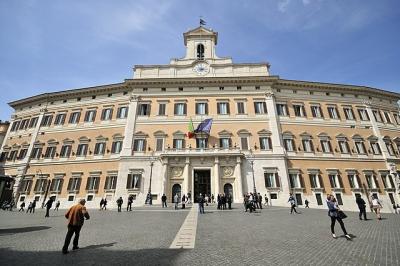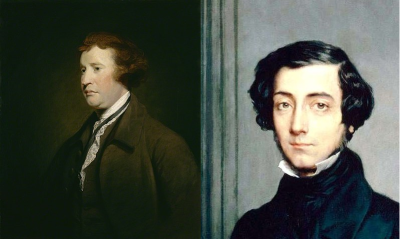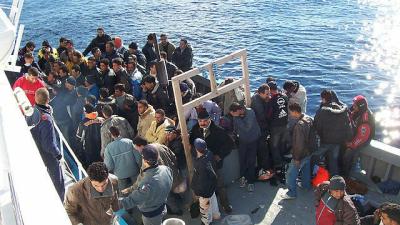Italy's new foreign policy - between support for Kiev and the Mediterranean gas pipeline.
The month of January, the first of the Meloni government after the approval of the budget law - the first major test for the executive, and above all with little time available to activate an overall long-term plan - was characterised by a double concentration of urgencies. Domestically, the events linked to the detention of the anarchist terrorist Cospito and his hunger strike, have rekindled the debate on the so-called “41 bis”. This is a hard prison regime first established for top bosses of organised crime and then also applied to leaders of terrorist organisations, ramified and structured throughout the country. The “41 bis” rule is necessary to prevent leaders from continuing from the same prison to direct the activities of the movements operating outside. Thus the plan of the anarchist movement and its flankers was to attempt moral blackmail on the government and especially on Prime Minister Giorgia Meloni. They tried to use Cospito's hunger strike as a means of pressure to condition the government's choices and weaken the “41 bis” rule itself, which is a real nightmare for both terrorists and organised crime bosses. The government has not yielded to the pressure, demonstrating such a strength and sense of institutions, that recent polls show a growth in popularity of both the government as a whole and the relative majority party led by President Meloni herself.
On the economic front, fuel price rises have increased tensions, but even on this front the government has kept the rudder straight, and in the end the Prime Minister's line has proved effective. The government's choice was geared towards support for those in need, but no longer with a sort of generalised rain of support. Instead, the Prime Minister said she was convinced of the need to apply a measure of necessary 'social policy'.
In the international arena, there was no lack of friction with Macron's France over the failure to invite Meloni to the dinner organised at the Elysée Palace with the German Chancellor Sholtz and the Ukrainian President Zelensky. The friction was partially quickly alleviated mended by a bilateral conversation in Brussels between the Prime Minister and the Ukrainian President, in which the Head of Government reiterated the support for economic and military aid to Kiev. The Meloni government has never failed to support the Ukrainian resistance. Already in the last legislature Meloni herself and her party were very active in supporting the NATO commitment against Russian aggression from the opposition benches. To date, the Italian government has shown itself to be the most solid ally of the United States. This even makes many opinion leaders speak of an 'ultra-Atlanticist' government that aims to be an autonomous interlocutor with the USA beyond relations with the European institutions. We must not forget the deep ties that bind the current Italian government with the Polish government, which is on the front line in the fight against Russian influence and in support for Ukraine. This element highlights the desire to look towards the European elections of 2024 with the will to break the alliance between populists and socialists, with a government of centre-right European institutions having an axis between populists and conservatives. This is what Giorgia Meloni looks forward with great attention.
In the foreign policy, the Italian government's agenda does not mention Ukraine only – despite its centrality forced by the state of the conflict - but also, and above all, North Africa. President Meloni embarked on a strategic trip to Libya not only to strengthen ties with the former colony, but also and above all to make it clear that the new foreign policy starts again from the places abandoned by the inertia of the preceding executives. It starts precisely from new and solid bases for collaboration, in the energy field above all. By now, it is clear to everyone that the government's desire is to create a European energy hub in the regions of southern Italy, so as to reinforce support for autonomy from Russian gas and make Italy an absolute protagonist in the energy policies of the coming years - hence the plan for the gas pipeline between Italy and Algeria. This strategy clashes - not a little - with French policies. Hence, according to many observers, the reasons for hardening of the relations between Rome and Paris.
The message sent by Giorgia Meloni is clear. Italy is back to being a leading actor in Mediterranean politics, with its own autonomous strategy.
Read also
The Right and the Organisation of Culture
The Sardinian thinker concentrates on the process of the formation of intellectuals in a civil and political society. After specifying the role of Italian intellectuals abroad and their cosmopolitan function, he dwells on the organisation of culture and related issues.
Francesco Giubilei
Conservatives and Classical Liberals - What to Choose?
In a political and cultural context as changeable as the contemporary one, any use of rigid categories to define parties and alignments or thinkers and men of culture can be misleading.
Francesco Giubilei
"Never so many immigrants!" Italy's cry for help
A flow of immigrants never seen before. Every day, hundreds and hundreds of arrivals on Italian coasts are bringing reception workers to their knees.















Comments (0)